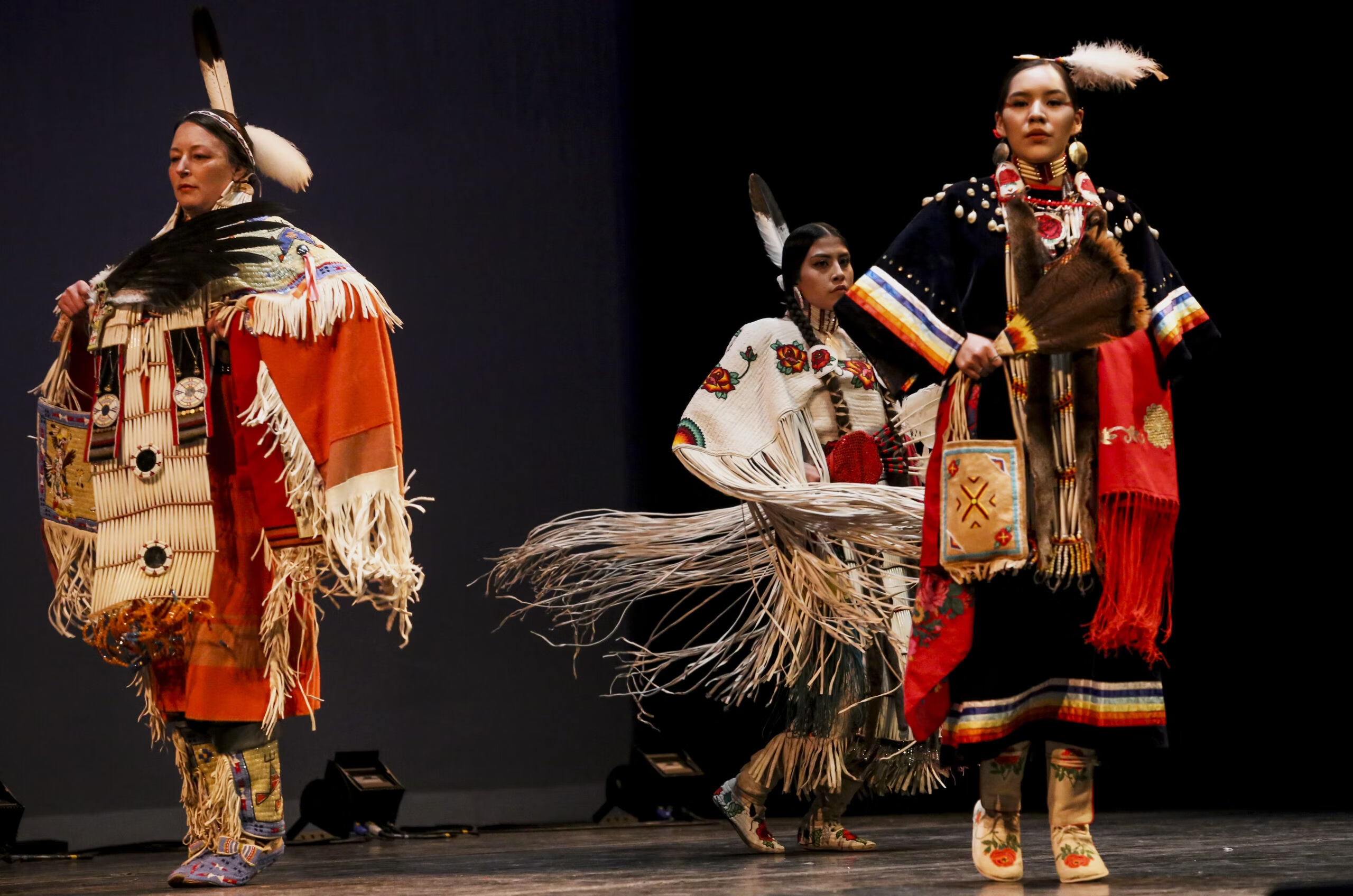LARAMIE — Complex bureaucracy could be one of the big hurdles facing Native American entrepreneurship in Wyoming, Gov. Mark Gordon said during a conference here.
Gordon opened the WY-Wind River: Economic Development & Entrepreneurship Symposium on Wednesday at the University of Wyoming with remarks about moving forward together with Wyoming’s Native American population, embracing the outdoors and supporting entrepreneurship.
“If you want to start a business in this day and age, you have tools … you can tweet to the outside world, you can reach anybody in the world,” Gordon said. “But if your own government is standing in the way of getting things accomplished, it can be really frustrating.”
A streamlined process through the levels of government — tribal, state and federal — needs to be created to facilitate economic growth on the Wind River Reservation and throughout Wyoming, Gordon said.
“In this administration, we want to do everything we can to ensure entrepreneurs can thrive,” he said.
Speaker and moderator Gary Davis, the Native American Financial Services Association executive director and Native Business Magazine publisher, agreed with the governor’s statements and said unity was the key to economic development.
“If we can’t advance together, we can’t advance,” Davis said.
Progress could require difficult conversations, he added, but without them, the Native American community could forget its entrepreneurial roots.
“In the most layman’s terms, economy is to create business that generates revenue, (turning each dollar over) at least seven times … before it leaves the community,” Davis said. “I struggle to think of one community that can say they do that in Indian Country.”
To build a better environment for starting businesses, he said Native Americans need to invest in themselves and seek buy-in from their governments.
“The trick is how do we not foster dependency when advocating for economic development,” Davis added.
Following the presentations, the symposium opened a panel moderated by Davis and Sen. Affie Ellis, R-Cheyenne, which featured Native American influencers from around the state and ENDOW Executive Council Member Jerad Stack.
Panelist Cy Lee, an ENDOW executive council member and Wind River Development Fund executive director, discussed the potential for growing the tech industry on the Wind River Indian Reservation.
Lee explained a redundancy loop for internet service was under construction on the reservation, which could lead to tech-centric job opportunities for reservation residents.
“When this loop is completed … an industry opens for growth,” he said.
By establishing the redundancy, the area on and around the reservation could have the best internet service stability in the state, Lee said. Internet stability could attract tech companies, opening a currently limited job market for reservation residents.
Another panel member, Rep. Andi Clifford, D-Riverton, touted the success of the Wind River Casino as a tribal entrepreneurial endeavor.
“When I started work (at the casino) in 2005, there were 62 employees,” Clifford said. “Before the economy and state funding crashed, we had over 800 employees. Sixty percent of those were were female. A lot of those workers were single moms and single dads.”
The biggest challenge facing the casino employees was child care, she said. A daycare is currently being developed on the reservation with a programming emphasis on Northern Arapaho culture, Clifford added. When the casino was founded, she said a large portion of the profits were leaving the community. During its expansion, the owners focused on becoming self-reliant.
“We started doing things for ourselves,” Clifford explained.
By doing so, they were able to create more jobs on the reservation and utilize previously abandoned buildings for services such as laundry.
The symposium was hosted by the High Plains American Indian Research Institute (HPAIRI), and after the panel discussion, HPAIRI Director James Trosper announced a new partnership with the Wyoming Technology Business Center.
The partnership could provide Native American startups access to millions of dollars in micro-grants for market research. Additionally, the business center announced it was kicking off the Wind River Startup Challenge, an economic development initiative modeled after the Fisher Innovation Challenge and designed to financially reward entrepreneurship on the reservation.
The symposium closed with a performance by the Eagle Spirit Dancers and Singers.





